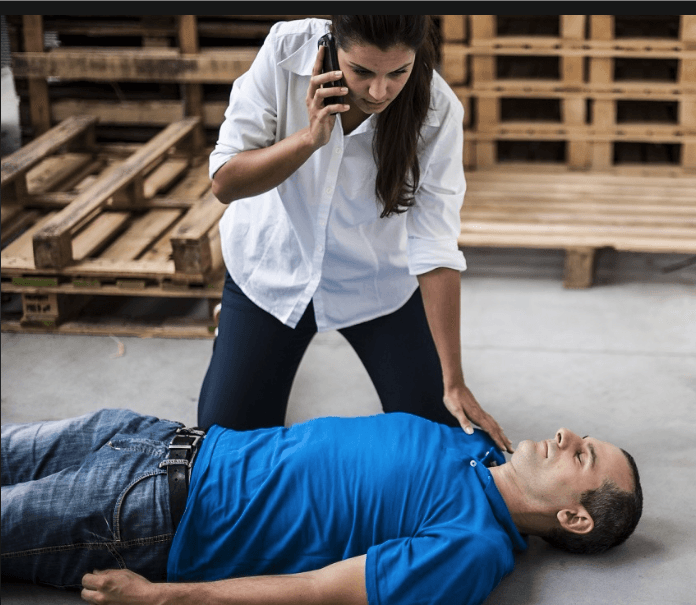
Remote help for CPR can be a life saver, especially when sudden cardiac arrest (SCA) strikes. It’s best to know the 3 steps to save a life: Call.Push.Shock.™: 1) call 911, 2) administer hands-only CPR and 3) use of an automated external defibrillator (AED) when available.
Telephone CPR (TCPR) or Dispatch-Assisted CPR (DACPR) refers to a process where emergency dispatchers guide bystanders through performing CPR over the phone in situations where immediate, hands-on help is needed but the bystander responder is not trained in lifesaving skills. The major goal of TCPR/DACPR is to make lifesaving assistance available to individuals even if bystanders have no prior CPR training, reducing the time without chest compressions while waiting for EMS to arrive, which is essential for the victim’s chances of survival.
Besides sending emergency teams to the location, a trained 911 dispatcher will remain on the line to provide step-by-step instructions on how to perform CPR. First the dispatcher asks for the signs and conditions of the victim, to assess that a Sudden Cardiac Arrest (SCA) has occurred.
What happens in TCPR:
1. Recognizing Cardiac Arrest: The dispatcher will ask questions to determine if the person is unresponsive and not breathing normally.
2. Instructing on Chest Compressions: The dispatcher will guide the bystander to perform chest compressions at the correct depth and speed (typically about 2 inches deep and 100-120 compressions per minute).
3. Ensuring Safety: The dispatcher might also instruct the caller to check the scene for safety, such as moving any obstacles or making sure the person is on a firm surface.
These systems are designed to improve survival rates by ensuring that even untrained individuals can offer valuable help during the critical moments before paramedics arrive. The process has been shown to significantly increase survival outcomes, especially when it is administered quickly and correctly.
The major goal of telephone CPR is to make life-saving assistance available to individuals even if bystanders have no prior CPR training, reducing the time without chest compressions, which is essential for the victim’s chance of survival.
At Starting Hearts, we can provide you with specific training that can make a life-saving difference.
Contact us for more information: info@startinghearts.org.
